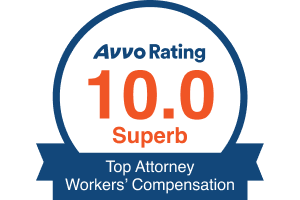Use of Social Media in Workers’ Compensation Claims
Job Injury Lawyer Serving Spartanburg and Greenville Residents
If you have suffered an injury while on the job or doing something related to your job duties, you may file a claim with the South Carolina workers’ compensation system to pursue benefits. The claims process may be extensive, and it involves a thorough assessment and examination of the injury as well as the claimant’s overall health and capabilities. With the rise of social media, many insurers have turned to the use of social media in workers’ compensation claims as a way to combat valid claims by using material from a claimant’s social media accounts to suggest that they are not as injured as they say and therefore should not receive benefits. Greenville and Spartanburg workers’ compensation attorney Patrick E. Knie is ready to help you protect your rights and ensure that you are treated fairly.
The Right to Benefits Following a Work-Related Injury
The workers’ compensation system is an exclusive remedy for injured workers, providing them with benefits in exchange for the right to sue an employer in civil court. As a result, the workers’ compensation system is not fault-based but instead focuses on assessing the nature and scope of a worker’s injuries.
Work-related injuries may occur in a variety of ways. There are some obvious examples, including slip and falls, car accidents, and other situations that result in an immediate and observable injury. In other instances, the injuries manifest slowly over time, particularly when they involve repetitive actions like working on an assembly line. If you think that your injury is related to your job duties, it is critical that you notify your employer so that it can file a claim with its workers’ compensation insurer.
Next, you will be asked to submit to a medical examination by a physician of the insurer’s choosing. The physician will assess the extent of your injury as well as the likelihood that you will recover in the near future. If the physician concludes that your injury is a result of your occupational duties, you will be entitled to compensation for your medical expenses as well as regular benefit payments to supplant your wages. Benefit payments usually amount to roughly 67 percent of your average weekly wage, derived from the four quarters preceding the accident.
Understand the Use of Social Media in Workers’ Compensation Claims
The insurer will be eager to obtain any evidence that undermines your assertions about your injuries. For example, if you are claiming that you have suffered severe back pain at work following an accident, the insurer may engage a private investigator to obtain undercover surveillance as well as researching your social media accounts and other information on the internet that may suggest that your injury is not as severe or not as extensive as you claim.
There are a number of things that insurance companies assess when it comes to social media. If an individual has a history of filing claims, reports accidents without any witnesses involved, or offers conflicting reports regarding how the injury occurred, the insurer may dig deeper into the employee’s Facebook account and other social media accounts to see if there is any evidence suggesting that the injury is false or less severe. It is critical to think carefully about the use of social media in workers’ compensation claims if you are a claimant in a workers’ compensation proceeding and to consult an experienced workers’ compensation lawyer to assist you with protecting your rights.
Hire a Greenville or Spartanburg Attorney for Your Workers’ Compensation Claim
Navigating the workers’ compensation system is often complex, especially if you have little to no experience with its nuances. Although you are not required to retain an attorney, it may make all the difference when it comes to receiving the full amount of benefits that you deserve. Job injury lawyer Patrick E. Knie assists injured workers throughout South Carolina, including in Spartanburg and Greenville as well as many areas of Union, Laurens, and Cherokee Counties. To set up a free consultation, call us at (864) 582-5118 or contact us online.







